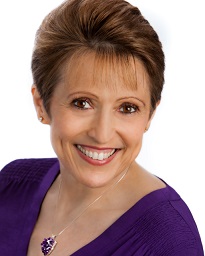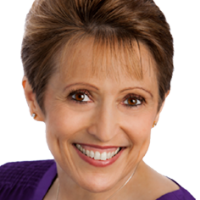Learning that childhood trauma is relational trauma also helped explain why I struggled so much with social anxiety. For over a decade of my childhood, I witnessed an out-of-control alcoholic mom who regularly shamed my dad and frequently shamed me. I also experienced walking through life as an overweight child and later as a severely obese lesbian in a fatphobic and homophobic culture.
What did all of these experiences have in common? People who were hurting, judging, or condemning me. This taught me that people weren’t safe since they were the source of my deepest pain. This insight helped me understand why for the first ten years of my recovery in AA, the only people I hung out with were lesbians who were also in recovery with alcohol, drugs, and food. They were the only people I felt safe with since they were just like me. How could they judge me? They were me!
I had no idea I’d adopted a worldview that people weren’t safe until I discovered this aspect of childhood trauma. With this new awareness, I saw that my “people aren’t safe” worldview had significantly impacted my ability to connect with new people. I’ve made a lot of progress in this area, yet it’s often still challenging to feel safe being open about my history of trauma, obesity, and addiction with people I don’t know well.
Since I wasn’t aware of having a “people aren’t safe” worldview until a few years ago, I couldn’t understand why I had hardly any close friends. It baffled me because I really like people and love having fun with friends. Once I feel safe, I love connecting with people.
Today I’m aware that when I don’t feel safe with someone, a stress response gets triggered in my body, making me anxious and uncomfortable. As a result, I feel the impulse to distance myself or leave for self-protection. Understanding how I’d adopted this worldview and how it has impacted my social interactions and relationships has been extremely helpful.
Now that I have this awareness, I’m much more mindful when I start assuming that people aren’t safe. When it comes up, I challenge my assumption and ask if it’s true or if it’s just an old default stress- response program running.
Now when I attend social functions, I set goals designed to foster corrective relational experiences to help rewire my brain and rewrite my narrative to “most people are safe enough.” As a result, I’ve experienced significant progress in feeling safe and connected with people I would never have felt safe with before.
I’ve written about how I’ve been able to heal the relational aspects of my trauma and what I’ve done to forge and maintain healthy relationships in my book It’s Not About Food, Drugs, or Alcohol: It’s About Healing Complex PTSD.
I also provide several worksheets, quizzes and questionnaire on how to develop close, healthy relationships in the workbook section of my book.

Learn How To Heal From Complex PTSD
Learn How To End Your Struggle With Food, Weight, Substances & Relationships
